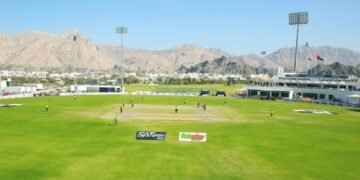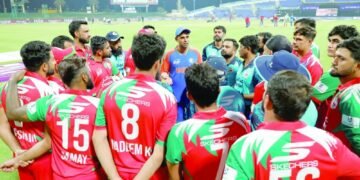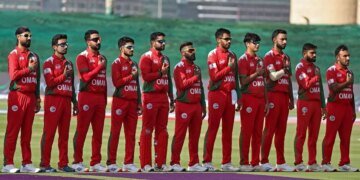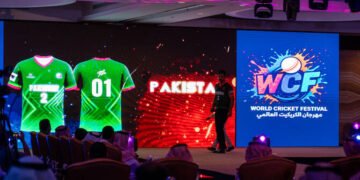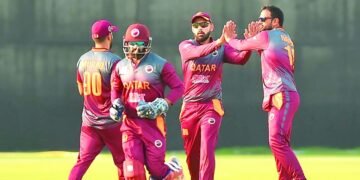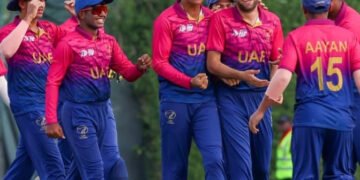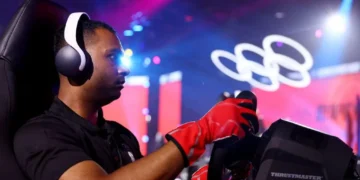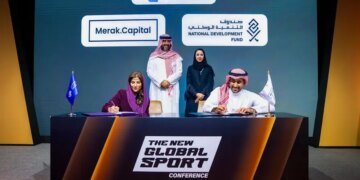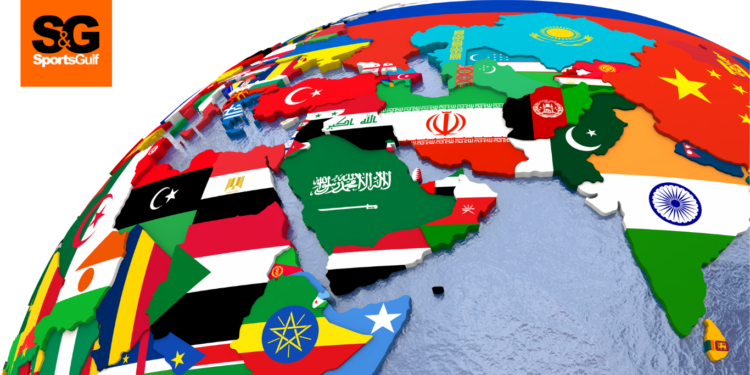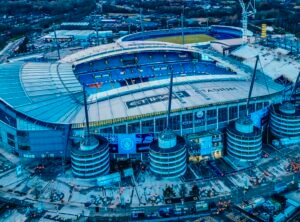For decades, the global sports arena has been predominantly dominated by Western countries. Europe and North America have set the pace in terms of talent, coverage, and financial influence. However, a seismic shift is underway. The Middle East, particularly Saudi Arabia, the United Arab Emirates (UAE), and Qatar, is transforming into a global hub for sports. This transformation is not merely about hosting events but is a strategic reimagining of the sports landscape, encompassing massive investments, talent acquisition, and grassroots development.
A New Arena for Global Events
The Middle East’s venture into hosting major sporting events marks a defining moment in sports history. Qatar’s hosting of the 2022 FIFA World Cup was more than a tournament—it was a bold statement of intent. With an estimated investment of $200 billion, Qatar transformed its infrastructure, constructing state-of-the-art stadiums that fused cultural authenticity with futuristic design. Despite initial skepticism, the event showcased Qatar’s capacity to deliver on a grand scale, captivating audiences worldwide.
Similarly, the UAE has consistently attracted international attention. The creation of the Yas Marina Circuit in Abu Dhabi, costing over $1 billion, brought Formula 1 racing to the desert. Dubai’s $4 billion Sports City serves as a hub for sports development, featuring stadiums, academies, and facilities catering to various disciplines. These investments position the UAE as a premier global sports destination.
Financial Muscle Meets Visionary Ambition
At the core of this transformation is substantial financial investment paired with strategic vision. These nations are not merely spending money; they are redefining global sports through calculated moves.
Saudi Arabia has been particularly assertive:
- Acquisition of Newcastle United: In 2021, the Saudi Public Investment Fund (PIF) acquired an 80% stake in the English Premier League club for approximately £300 million ($409 million), signaling Saudi Arabia’s intent to become a significant player in global football.
- Saudi Pro League Investments: The PIF has invested heavily to attract top-tier talent. Cristiano Ronaldo’s move to Al-Nassr FC came with a reported salary of over $200 million per year, one of the most lucrative contracts in sports history. Other stars like Karim Benzema and N’Golo Kanté have joined Saudi clubs, with total spending reaching into the hundreds of millions of dollars.
- Golf Disruption with LIV Golf: Investing an estimated $2 billion, Saudi Arabia launched the LIV Golf series, challenging traditional golf tours and offering substantial contracts to lure the sport’s biggest names.
- Riyadh Season Boxing Events: As part of the annual Riyadh Season, a festival showcasing entertainment, art, and culture, Saudi Arabia has invested in hosting high-profile boxing matches to bolster its sports tourism sector. Notably, the Clash on the Dunes—the rematch between heavyweight champions Anthony Joshua and Andy Ruiz Jr.—was held in December 2019 in Diriyah, near Riyadh. The event reportedly involved site fees of around $60 million, and the construction of a custom-built venue, the Diriyah Arena, demonstrated Saudi Arabia’s commitment to delivering world-class sporting events. The success of this event paved the way for subsequent bouts, including the anticipated match between Tyson Fury and Oleksandr Usyk, emphasizing the nation’s rising influence in the boxing world.
Qatar has made significant strides through:
- Paris Saint-Germain (PSG) Acquisition: Through Qatar Sports Investments, Qatar purchased PSG in 2011. Since then, over €1.3 billion ($1.5 billion) has been invested in player acquisitions, including the record-breaking €222 million transfer of Neymar Jr., transforming PSG into a global powerhouse.
- Hosting Global Events: Beyond the FIFA World Cup, Qatar has hosted the World Athletics Championships and is set to host the 2030 Asian Games, investing heavily in facilities like the Khalifa International Stadium.
The UAE continues to influence global sports:
- Manchester City and City Football Group: The Abu Dhabi United Group’s acquisition of Manchester City FC in 2008, with investments surpassing £1.5 billion ($2 billion), has transformed the club into a dominant force in English football.
- Infrastructure and Events: Hosting the annual Abu Dhabi Grand Prix and investing in community-level sports facilities highlight the UAE’s commitment to sports excellence.
Attracting Global Talent
The migration of elite athletes to Middle Eastern leagues is redefining competitive landscapes. These nations offer not only lucrative contracts but also the opportunity to be part of pioneering sports movements. The arrival of superstars elevates domestic leagues, inspires local talent, and attracts global viewership.
In football, these signings are part of a broader strategy to enhance the quality and reputation of local competitions. The disruption in golf with LIV Golf has forced traditional tours to reevaluate their models, demonstrating the Middle East’s capacity to influence established institutions.
Nurturing Future Generations: Grassroots Initiatives and Academy Investments
Beyond high-profile acquisitions, the most profound impact may lie in the region’s commitment to nurturing future athletes. Saudi Arabia, the UAE, and Qatar are investing significantly in grassroots programs and sports academies, laying a foundation for sustainable athletic excellence.
Saudi Arabia’s Vision for Youth Development:
- Mahd Sports Academy: Launched in 2020 with an investment of approximately $660 million, it aims to scout and develop young talent across various sports, targeting children aged 6 to 17. With centers planned nationwide, Mahd seeks to identify future champions through world-class coaching.
- Grassroots Football Initiatives: Programs like the Saudi Schools League involve thousands of students, fostering competitive play and early talent identification. Efforts to promote women’s participation, such as the launch of the Women’s Football League, mark significant cultural progress.
The UAE’s Commitment to Building a Sports Culture:
- Dubai Sports Council Initiatives: Youth programs and the Dubai Club Academies offer training in multiple sports, providing access to professional coaching and facilities. Community events like the Dubai Fitness Challenge encourage widespread participation.
- Inclusivity and Diversity: Hosting events like the Special Olympics World Games Abu Dhabi 2019 reflects the UAE’s dedication to inclusivity and empowering athletes with intellectual disabilities.
Qatar’s Legacy of Talent Cultivation:
- Aspire Academy: Founded in 2004, this world-renowned institute identifies and develops young athletes, offering education alongside sports training. It has produced athletes who compete at the highest levels, including Olympic medalists.
- Generation Amazing: Part of Qatar’s World Cup legacy, this program uses football for development initiatives domestically and internationally, promoting social inclusion and community cohesion through sport.
Cultural Exchange and Soft Power
Sports have become the Middle East’s bridge to the world, fostering international relationships and projecting soft power. Hosting global events spotlights the region’s culture, hospitality, and rapid modernization, challenging stereotypes and inviting global audiences to engage with the Middle East on new terms.
Domestically, these investments serve to:
- Promote Economic Diversification: Initiatives like Saudi Arabia’s Vision 2030 and Qatar National Vision 2030 highlight sports as catalysts for tourism, employment, and international investment.
- Encourage Nation-Building: Developing sports infrastructure and programs promotes healthy lifestyles, inspires youth, and unifies diverse populations under a shared passion.
Challenges and Sustainability
While the momentum is impressive, sustaining this level of investment poses questions:
- Economic Viability: Translating enormous expenditures into long-term economic growth and diversification is crucial. The return on investment in terms of tourism, global branding, and domestic development is still unfolding.
- Local Talent Development: Balancing the influx of international stars with nurturing homegrown athletes is essential for identity and sustained success.
- Global Sports Economics: The massive financial input has inflated salaries and transfer fees, creating disparities in global sports. Traditional Western leagues may struggle to compete financially, prompting discussions on regulatory reforms.
- Social Perception and Criticism: Addressing concerns about “sportswashing” and ensuring transparency and adherence to international standards is vital for building trust.
The Future of a Multipolar Sports World
The emergence of the Middle East as a central player heralds a multipolar era in sports. This shift offers fresh narratives, diverse fan experiences, and new competitive dynamics. It challenges the dominance of traditional powerhouses and invites reevaluation of how sports are governed and enjoyed globally.
International federations may need to adapt, ensuring fair competition and inclusivity while embracing growth opportunities. The decentralization of sports power aligns with broader global trends of multipolarity in economics and politics.
A New Dawn Beckons
The Middle East’s ascendancy in sports is reshaping more than just leagues and tournaments; it’s redefining cultural and economic connections worldwide. By leveraging immense financial resources with strategic vision, Saudi Arabia, the UAE, and Qatar are not only hosting the game but changing its very nature.
As spectators and global citizens, we are witnessing a transformation that extends beyond the pitch, track, or circuit. It is a movement intertwining ambition with tradition, innovation with heritage. The stories unfolding in these new epicenters of sports will enrich the global tapestry, offering perspectives and shared passions that transcend borders.
Exploring Further
- Economic Diversification Through Sports: How are these investments impacting the shift from oil-based economies to diversified portfolios? What lessons can other nations learn from integrating sports into economic planning?
- Impact on Local Communities: How are grassroots programs nurturing local talent and increasing sports participation among youth and women? How does sports infrastructure development improve the quality of life?
- Global Sports Governance: How might international federations adapt to ensure fair play amid the changing landscape? What regulatory changes could emerge in response to the financial influence of Middle Eastern nations?
- Sustainability of Investments: Are current spending levels sustainable, and what strategies ensure long-term benefits? How might global economic fluctuations impact these ambitious projects?
- Role of Technology and Innovation: How are Gulf countries leveraging technology in sports education and athlete development? The integration of data analytics, virtual reality training, and biometrics is modernizing training programs.
- Inclusivity and Accessibility: Efforts to ensure sports opportunities are accessible to all, including underprivileged communities and people with disabilities, are essential. How are programs structured to reach diverse populations?
By investing deeply in the foundations of sports development, the Middle East is not just enhancing its international standing but cultivating a vibrant sports culture within its societies. This holistic approach ensures that the region’s rise in global sports is profound, sustainable, and rooted in empowering its people.
As the Middle East continues to invest, innovate, and inspire, the global community watches with curiosity and anticipation. The future of sports is being reimagined, and it is a game where everyone stands to win.



